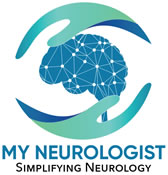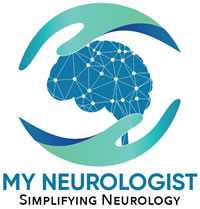What is MCI?
It is a medical term for someone having a noticeable cognitive dysfunction but not enough to make a diagnosis of dementia. Please read about dementia as a separate topic, available on this site.
What are the symptoms of MCI?
Common symptoms of MCI are forgetfulness, losing things, word finding difficulty, poor judgement, difficulty in communication, or an abnormal behavior. Symptoms are mild but more than what may be expected for the person’s age group. In terms of physical symptoms, there may be loss of sense of smell or balancing. While having these symptoms, the person remains functional in daily routines, and the problem may not be noticeable except by the close associates.
What is the difference between MCI and forgetfulness-with-aging?
There is a part of brain we may call the memory making machine. It works well in young age and continues to function well for most of us until we grow old. At some point, it gets rusty and does not perform as well as it used to. We consider it a normal part of aging and may call it the forgetfulness-with-aging. But what is normal anyway? Normal is what we say is normal. Despite we call it normal, forgetfulness-with-aging is not a normal phenomenon. It happens due to certain changes in the memory making areas of brain. If given an option, we likely will prefer to stop or reverse these changes. As we currently do not have a way to intervene, we accept it as the normal age-related forgetfulness. With advances in our knowledge and the technology, we may at some point find a way to intervene.
In MCI, a person has a cognitive problem that is more than what is expected from aging or age-related-forgetfulness. As you may notice, this division is somewhat arbitrary and the best one can say is that there is a spectrum from normal to forgetfulness-with-aging to MCI, which may or may not lead to dementia. I am certain that in future, as technology advances, this terminology will be obsolete. In future, we may talk in more concrete terms based upon our exact knowledge of the pathology of each step.
How is MCI diagnosed?
Usually, a formal personal consultation with a physician helps to make this diagnosis. Digital or on-screen evaluation may not be as useful because a clinician acquires a lot of useful information through a personal interaction. While meeting in person, there are many ways to check a person’s cognitive functioning from an informal conversation to using a few minutes of formal psychological testing (like the Mini-Mental Status Examination [MMSE] or the Montreal Cognitive Assessment [MOCA]) scale to a few hours of sophisticated neuropsychological evaluation. There is no lab or imaging test to make this diagnosis. One or more tests may be done, on case-by-case basis, to refine the diagnosis but are not essential. In most cases, formal neuropsychological testing is not required either.
One of the common challenges in making this diagnosis is the patient’s language, if it is different from the doctor. Challenge remains even if an interpreter is used because it is difficult to assess a mild cognitive problem of a person who speaks a different language. Some of the other challenges are patient’s limited formal education, some medical and psychiatric conditions, and doctor’s limited experience and training.
In cases where Alzheimer disease is strongly suspected, for example in patients with strong family history, further testing may be useful.
Are there different types of MCI?
MCI is divided in two broad types: Amnestic and non-amnestic types. In the amnestic type, the main issue is with memory. It is the more common type of MCI. In the non-amnestic type, memory function may remain relatively intact while the patient may have poor judgement, inability to do complex tasks, difficulty following directions, or abnormal visual perception. These types depend upon the area(s) of the brain involved in the disease process.
What causes MCI?
All conditions that may cause dementia, may also cause MCI. In patients who do not have an obvious physical cause, like a stroke, trauma, or infection, the cause is degeneration (dying out) of brain neurons. What leads to the death of brain neurons is not completely understood but what we know can be understood like this: A cell is like a city with factories like structures that manufacture proteins. Like any factory, they produce waste that needs to be taken care of. Every cell also has structures that are responsible for the task of cleaning waste material. In some people for some reason, either the cleaning apparatus does not function well or too much waste material is produced, which a cell cannot handle. As a result, gunk like material, the amyloid, builds up in the cell. This is a slow process and after months to years, this gunk or amyloid chokes the streets or the structures of the cell, leading to its death. This process, the way we understand it, does not involve an infection or allergy or a toxin. The nature of the basic flaw in the system is not precisely known.
What are the risk factors for MCI?
Following are risk factors for MCI:
- Aging, by itself put all of us at risk.
- Genetic makeup. Some people are more at risk for MCI and dementia than others due to the genes they carry, e.g., APOE e4 gene.
- Hypertension
- Diabetes mellitus
- Abnormal cholesterol level
- Obesity
- Obstructive sleep apnea
- History of head injury or concussions
- Alcohol and drug use
- Depression and anxiety
- Lack of social and physical activity
How common is MCI?
It is quite common, about 15% of people aged 60 or older may have MCI. It is about as common as migraine.
What percentage of patients with MCI develop dementia?
Overall, about 1/3rd of patients with MCI may develop dementia in five years of diagnosis. This number may be higher depending upon the diagnostic accuracy of MCI.
What is the treatment for MCI?
At this time, in 2024, there is no treatment available for MCI that may slow it down, stop or reverse it. Few previous trials with different type of chemical drugs have not shown any benefit. This may change in near future with development of biological drugs.
Is there a test to know which patient with MCI may develop dementia?
This is an important subject because of availability of some disease-modifying drugs for Alzheimer disease. There are some blood, CSF, and imaging tests available to address this question. These tests are not needed in every patient and are employed on case-by-case basis.
What should a person do if diagnosed with MCI?
I tell people that there are always things in life that we have no control on, for which we should worry less. But there are a lot many other things that are in our control, which we should pay attention to. Following measures are helpful to manage MCI:
- Be knowledgeable about this condition. It is a rapidly changing field, and new developments may not be far away in future.
- Have a thorough medical examination by your PCP to make sure there is no medical issues for this type of symptoms, like thyroid disease or B12 deficiency.
- If you have high blood pressure, control it well.
- If you have diabetes, control it well.
- If you have high cholesterol, you may try diet and exercise therapy but don’t hesitate to take a medicine like a statin.
- Maintain normal weight. Obesity is a major health problem.
- Make a habit of some light exercise like walking a mile or two most of the days. If possible and safe, exercise in outdoors. Outdoors, especially nature, provide better mental stimulation.
- If you are diagnosed with obstructive sleep apnea, make sure you treat it appropriately. Read about this condition on a different page.
- Avoid alcohol drinking, and all drugs of abuse. Alcohol and marijuana might have some marginal health benefit, but their negative impact on our brain is much larger. Other drugs of abuse are even more harmful.
- If you are suffering from anxiety and/or depression, get appropriate treatment.
- Avoid stress. If watching news makes you anxious, avoid watching or reading about it. Also, avoid stress provoking company or situations.
- Pay attention to sleep and try to sleep for 7-8 hours a night. Sleep disorders, like restless leg syndrome, are common. Seek help if you cannot sleep well.
- Pay attention to sleep hygiene. Read about it on this site.
- Avoid contact sports or activities that may lead to head injury or concussion.
- Drive carefully. Driving accident or overseeding may lead to multiple types of complications.
- Make sure that health proxy and legal power of attorney papers, if needed, are in order.
- For someone with financial assets, it is important to have an appropriate will and plan of action in place. This is a good practice for all but for anyone with cognitive issues, it is even more important.
- For someone with a job with critical responsibilities that may impact other people’s life, like a physician, a lawyer, or a politician, it may be important to review and modify one’s career plans. This may help to control anxiety, stress, embarrassment, or harm, which typically makes cognitive functioning worse.
- For brain stimulation, pick up a new activity or a hobby, something you have not done before, like learning a new language, visiting a new place, a new fun activity, or a new subject to read; anything new will do.
- If you have hearing impairment, wear hearing aids.
- Have proper vaccinations like the flu and the Covid vaccines. Both flu and Covid are risk factors for vascular disease that may cause further brain damage.
- Don’t smoke.
- Pay attention to diet and change if needed, the Mediterranean diet is one good option.
- Pay attention to your spiritual needs, which is one good way to manage some of the symptoms of this condition.
Where may I find more information about MCI?
- American Academy of Neurology
- American Alzheimer Association


Leave a Reply
Your email is safe with us.
You must be logged in to post a comment.